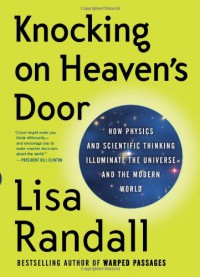Currently reading
Eleven
A Month in the Country
A Tale of the Dispossessed: A Novel
Mesabi Pioneers
The Crusades Through Arab Eyes
Island of a Thousand Mirrors
Knocking on Heaven's Door: How Physics and Scientific Thinking Illuminate the Universe and the Modern World
 Maybe this is obvious to everyone else, but I could not tell from the title, subtitle, or jacket that this is primarily a book about the Large Hadron Collider. It's a very good book about the LHC. And probably I would have read it sooner if I had realized that -- it just looked like another general "science is great" book that happened to be overhyped, and I took my sweet time in getting to it.
Maybe this is obvious to everyone else, but I could not tell from the title, subtitle, or jacket that this is primarily a book about the Large Hadron Collider. It's a very good book about the LHC. And probably I would have read it sooner if I had realized that -- it just looked like another general "science is great" book that happened to be overhyped, and I took my sweet time in getting to it.My guess is that this was a book she had in preparation for quite a while waiting for the discovery of the Higgs, but as full operations at the LHC got postponed, she added a few chapters to the beginning and end of the book to widen the scope and sent it to the printer. That's not such a bad thing. It just feels like the marketing was a little off.
The more general chapters at the end about cosmology are her wheelhouse. They're quite good. The general chapters at the beginning were not so good -- I nearly lost my motivation to read the book. The description of the standard model and the Higgs mechanism are okay but have been done better in other popular science books (my favorite description of the Higgs is Sean Carroll's). But the real gem in the heart of this book is the detailed description of the LHC itself, as well at the ATLAS and CMS detectors, the two main general purpose particle detectors at the LHC. I read a lot of popular science books, and I'm always looking for something that young students of physics (like my undergrads) would benefit from and enjoy. That chapter is going on my list of highly recommended reading. One of the best experimental descriptions I've read -- and yes, it's from a theorist. Fantastic.
So, like any 400+ page science book, there were some great moments and some sections I could have done without. Overall, though, I'd recommend the book.









